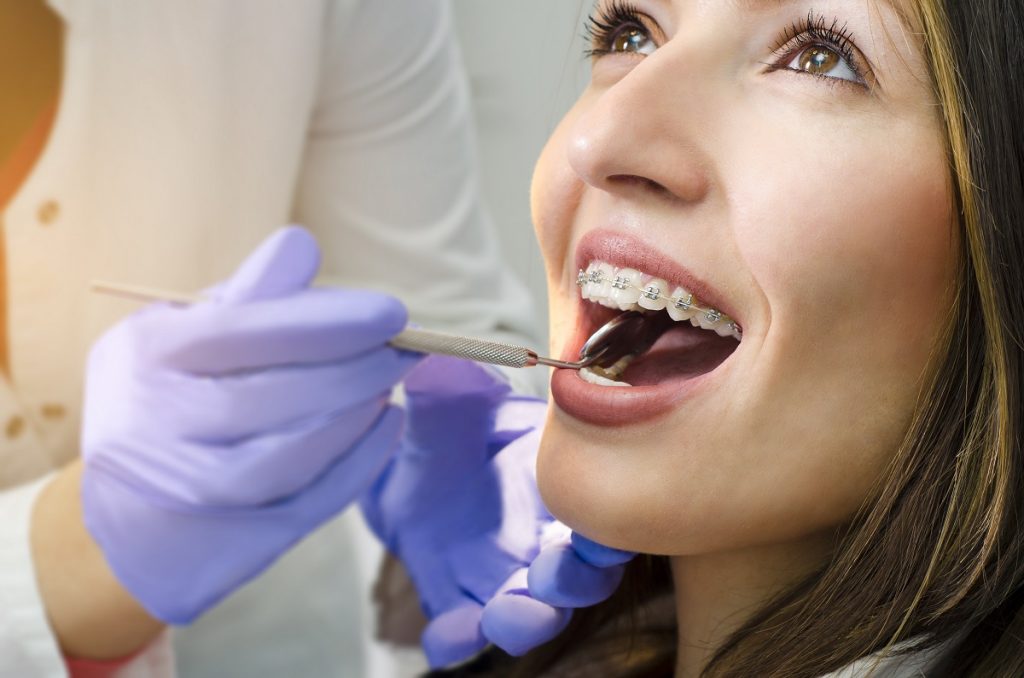Contrary to popular belief, people get braces for reasons other than vanity. It makes necessary corrections to misaligned teeth and jaws. When there are gaps in either the upper or lower layer of teeth, or when they are not supporting each other, it can lead to difficulty in chewing food and enunciation. It also prevents tooth decay as there will be a uniform approach to reaching crevices, rather than working on removing remnants from an anomalously-positioned tooth. Furthermore, protruding teeth can exacerbate accidents that involve a head-first injury. These are important reasons why many individuals consider braces as a necessary expense.
But it will only be a worthy investment if the person takes care of their attachments and listens to the professional opinion of a dentist. Although it corrects the position of your teeth, thereby reducing the chances of tooth decay, inadequate brushing while you have braces can lead to tooth decay as well. Look into other habits that you need to adapt to ensure that it is truly effective. Here are some main challenges people experience during and after they get their braces:
Soft Diet Is the Key
As your teeth adjust to the system created by your braces, you will need to get the wires tightened every month. This will hurt your jaw and make your teeth more sensitive to what you eat. The best thing you can do after your appointment is to avoid eating solid food, especially those kinds that require a lot of chewing, such as pizza, chips, or anything hard.
If you give in to temptation and decide to munch on a snack that strains your teeth and jaw, it can cause problems for your wires and brackets. The brackets might get damaged, causing the wire to get loose. In turn, this leads to a higher chance of you swallowing either component. Fortunately, it is rarely a lethal situation as the metal is said to usually pass through your body. Doctors say that consuming a healthy dose of fiber should help. Request assistance only when you have trouble breathing. You will have to get an X-ray to see if the piece of metal has entered your lungs.
Within 24 hours of your appointment, you should eat a soft food diet. Some examples in this diet include boiled eggs, noodles, and yogurt. You will experience pain as soon as the wires are tightened so hard food is going to be difficult to consume. To properly maintain your braces, it might be best to adapt to the soft food diet until they are completely removed.

Living with the Bands
To better guide your teeth and, hence, your jaw, rubber bands are likely to be attached to your brackets. You will have to learn to eat and brush your teeth with them inside your mouth. This provides an opportunity for your teeth to follow the direction set by the bands, positioning them to where they need to be. Again, be careful with what you decide to eat. Rubber bands are relatively easy to break, meaning that this will lead to more visits to the clinic.
The most hygienic thing to do will be to get your rubber bands chanced after every meal. However, this might be difficult to do without the proper equipment, so you should schedule more frequent visits instead. Do not worry if you feel as though you have swallowed a band; it will pass through your body just like the brackets and wires.
Retainers to Maintain Shape
During your final visits to the dentist, you will be required to form a mold of your teeth by biting onto something called alginate. It holds on to the shape of your improved pearly whites, which can be translated into a material that will help with maintaining their positions. You will need to wear them while you are sleeping, considering how it is nearly impossible to eat with them on.
Make sure that you wash both the retainer and its case after every use. You can use warm water and anti-bacterial soap to ensure that they are both clean. Pathogens will find it easy to thrive on unclean surfaces. So, if you do not maintain the retainer and its case, you could fall ill.
Braces come with a lot of responsibility, but they will help you live a better life in return. Your overall well-being will improve, and complications related to dental care can be avoided. A brighter and cleaner smile is the cherry on top of a healthier dentition.






